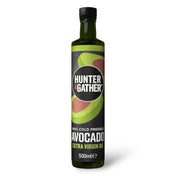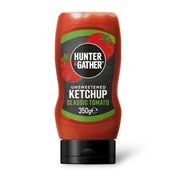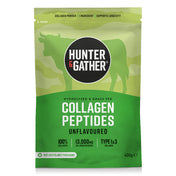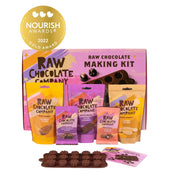What are your opening times?
Monday - Friday: 11am-4pm.
Saturday - Closed. Local Delivery Only
Sunday: Closed
We are available on our website Live chat until late.
________________________________________________________________
Do you offer Local Collections?
No sorry, we are not in a position to allow this at this present time. We will be offer local deliveries once we have suitable transport set in place. Hopefully mid 2024.
________________________________________________________________
Items I want are out of stock - what's going on ?
There may be a delay in getting our restock delivered due to issues at customs (for products imported from outside the UK) or with the suppliers themselves having production issues.
If you see a product out of stock, keep checking back as restock will be arriving soon, it usually takes 1-2 weeks or less. The best way is to sign up to receive restock notifications as soon as the system is updated. Feel free to contact us if you want a quick answer, we are available on live chat until late.
________________________________________________________________
Why do I see a charge when my payment fails??
When attempting a payment, we request a £0 or £1 authorization from your issuing bank to confirm that the card is valid and can be authorized. Whether the authorization is approved or declined, we promptly reverse the request. While some individuals may observe a £** authorization on their bank/credit card statement, it's crucial to note that this is not an actual charge, and it will eventually disappear from your statement. The timeframe for its removal varies depending on the bank, ranging from minutes to weeks.
________________________________________________________________
How long will delivery take?
Your order will be dispatched in most cases the same day payment has cleared and within 48hrs (excludes Sundays & Bank holidays).
Depending on your choice of postal service, delivery will take between 1-3 working days from when we dispatch your order. We endeavour to dispatch your order within 1-2 working days from you ordering (excludes Saturdays & Sundays & Bank holidays).
No courier services will be offered to the Highlands & Islands, Northern Ireland, Sicily Isles, Channel Islands and the Isle of Man. Only Royal Mail will only be offered.
________________________________________________________________
Do you offer Deliveries to the EU ?
Yes we deliver anywhere within the European Union.
Now that we are IOSS registered we can ship to the following countries in the European Union, EUROZONE Vat is charged at the checkout, please be aware we have no ETA once your arrives in your country and is dealt with customs when your order processed and send to you through customs, we ask if you would be patient whilst this is being done..
For all orders shipped to countries within the European Union (EU) with a total value under 150€ (excluding taxes and delivery), taxes and duties will be paid at checkout. This means that the price you see for the item(s) in your cart is the final price you'll pay, and there will be no additional fees or charges upon delivery. We make sure to follow all EU regulations and guidelines regarding taxes and duties, and strive to make the checkout process as easy and transparent as possible.
Any Purchases over $150 Euro's becomes the responsibility of the customer to pay any customs charges as this will be sent via DDU
DDU means 'Delivered Duty Unpaid', so when your package arrives at its destination country, the Customer will be contacted by customs to pay any customs duty owed before it will be released and sent on to the Customer, the sooner this is payed the less time your order will be subject to delays.
|
EUROZONE Deliveries |
|
 - GPSTracked 3-5 Business Days (not inc weekends & holidays) Subject to Delays at customs - GPSTracked 3-5 Business Days (not inc weekends & holidays) Subject to Delays at customs
|
--- |
| Price is calculated at the checkout | |
 - Tracked 2 Business Days (Parcelforce GPS tracked (3-5 working days, subject to delays at customs for inspection) - Tracked 2 Business Days (Parcelforce GPS tracked (3-5 working days, subject to delays at customs for inspection) |
--- |
| Price is calculated at the checkout | |
________________________________________________________________
Do you do local deliveries? - (Suspended Service)
We normally deliver anywhere within Stockport and some areas of Greater Manchester, prices are set at the checkout.
Prices start from £2.99 depending how far away from us you are. If you don't see a price get in touch. - (Returning mid 2024)
________________________________________________________________
Why don't you not ship to the USA or Canada?
Foods that are manufactured outside the USA or Canada are legally required to be registered with the relevant countries. Unless the brands do so, than it would be against the law for us to sell to the US or Canada.
For more information please see
For the USA please goto:
https://www.fda.gov/industry/importing-fda-regulated-products/importing-human-foods
For Canada please goto:
How do you deal with hot weather & deliveries?
All our products are kept in temperature controlled environments below <21 degrees. It gets a little trickier during transportation to ensure the products you order are kept in the best conditions when they reach you, this is due to the multi-chain interaction and transportation of goods in vehicles in hotter temperatures. This is beyond our control.
Should the outside temperature be very hot, we will delay sending out any products that could spoil until the weather has cooled down to ensure goods such as chocolates do not melt during transit.
We advise that a next day delivery guaranteed delivery service be used (not inc weekends & bank holidays) for temperature sensitive products such as products containing chocolate, and smart cakes.
Alternatively, it would be better to postpone ordering such products until the weather has cooled down.
Can I change or amend my order after it has been placed?
YES! - While we do our very best for our customers, sometimes it may not be possible. It is important that you always make sure your order is correct before checking out. If your order is still being processed and has not been dispatched we can normally accommodate small changes. If an order has already been dispatched then nothing can be done as it is out of our hands.
How will my order be packed?
Weigh out sugar-free sweets are packed in heat sealed bags to seal in freshness. Small items are sent using Large letter mail boxes if they are less than 2cm in depth, larger items are sent in various sized boxes to fit the total order. We use packing peanuts to offer protection, these are biodegradable and can be washed away down the sink.
How do you measure Pick & Mix Weights?
We will always ensure that the weight is on or over the amount you have ordered. We select at least one of every sweet. We use trade standard scales to weigh out.
Do you offer personalisation for your gifts?
No, we don't offer this service due to time restraints, we do however provide a branded tag which has a blank side which can you can write on yourself.
Will you be stocking other sugar-free/no added sugar/gluten free products in the near future?
Yes, we hope to be adding many more products to the list, including more whole foods. We also aim to try and source products that customers haven't been able to find when they did a product search on our site.
Why do we sell Sugar-Free products?
We sell sugar-free products in order to satisfy customer demand/satisfaction. More and more people realise that too much sugar can damage your health. With our range of sugar-free products, that risk can be reduced.
Sugar-free, low-calorie diets are becoming increasingly popular. In moderate quantities and as part of a balanced diet, sugar-free and no-added sugar products can contribute to weight loss because of the lower calorie and carbohydrate content.
What about Diabetes and Confectionery?
Most Sugar-Free and No Added Sugar products contained on this site are suitable for diabetics or as part of a controlled diet. However, as there are several different types of diabetes, we cannot say that this applies to all diabetics. All consumers need to consult their doctor or dietician if in any doubt at all. All consumers should conduct tests to determine the suitability for their specific needs.
Most of our Sugar-Free and No Added Sugar products are sweetened with Maltitol, Xylitol, Isomalt or Stevia, which contain less calories than sugar. All products on this site are made with high-quality ingredients and therefore they taste just as good as alternatives containing sugar, or even better.
According to statistics provided by Diabetes.org.uk, there are 3 million people diagnosed with diabetes in the UK, and another 850,000 that have the condition but are unaware. The number is expected to rise to 4.2 million by 2025. Diabetes has risen 50% worldwide.
It is estimated that at least 1 in 20 people in the United Kingdom have diabetes. Including children and adults, 15% of people with diabetes have Type 1 and 85% of people with diabetes have Type 2. These numbers are staggering. With these sort of numbers, it’s important to understand the nature of this chronic condition, especially when it comes to a diabetic’s relationship with sweets.
These statistics have drawn attention to the diabetes phenomenon as well as the sugar-free market, as consumers hustle to find a way to satisfy their cravings without the negative effects of sugar.
Many sweets manufacturers are producing products specially formulated for those with diabetes like sugar-free sweets, no-added sugar chocolates, and sugar substitutes. Controlling your carbohydrates and sugar intake can be managed by purchasing sugar-free confectionery as an alternative to normal sweets.
What about the Autism and the gluten, dairy and sugar-free diet?
According to media sources, there is a link between peptides (chemical bonds caused by amino acids) and enhanced autistic behaviour that can have an adverse effect, as in a case reported in the Daily Mail.
The majority of these peptides have been identified as coming from gluten, sugar and dairy, so Dr Munro recommends her patients eliminate these foods from their diet. A further sensitivity test may then be required to identify any other possible food triggers.
Helen started Tom on the gluten, dairy and sugar-free diet in July this year, one month after his first visit to the clinic. In just four months, Helen has been astounded by the change in his behaviour.
She says he is becoming generally more aware of what is around him and has started taking an interest in other people - such as by asking them questions. He has also started remembering more information and can recall it more easily than before.
Another symptom of autism is dark circles under the eyes, thought to be caused by the child's inability to absorb the proper amount of nutrients from their diet. Tom also suffered from these circles but since starting the diet, they have virtually disappeared.
The biggest change in Tom's behaviour has been his interaction with other children. Helen says, 'Before starting the diet I noticed that other children would be having conversations but Tom wouldn't be joining in. He was always too involved in his own activities, such as obsessively lining up all his toys in neat rows.
'He never used to have one special friend but now he has got a big group of friends that go round to each other's houses for tea. He has even got a little girlfriend!'
Tom will have to follow the diet for the rest of his life to control the symptoms of his Asperger Syndrome, but this is no different to somebody with a dairy or gluten allergy who has to cut these foods out of their diet. He may also need additional sensitivity tests to identify any other foods that trigger his condition.
Read more: http://www.dailymail.co.uk/health/article-149500/Autism-diet-cured-son.html#ixzz4KwpCIXXe
By reducing sugar intake or in moderation Sugar-Free can help ween children off sugar and sweetener altogether, it is known to have a positive effect on autistic children this is why we are providing an autism-friendly section on this site.
Please read also
https://www.autismspeaks.org/science/science-news/can-reducing-sugar-ease-autism-symptoms-mouse-study-suggests-it-may
Why are some products called Sugar Free and others No Added Sugar?
According to European law, products can only be labelled “Sugar-free” if the product does not contain more than 0.5 grams of sugar per 100 grams or ml. Products labelled “No-added sugar” can only be so if the product does not contain any monosaccharides or disaccharides. If sugars are naturally present in the product, it must be labelled as “Containing naturally occurring sugars.”
Products marketed as “sugar-free” include sweets like boiled sweets, liquorice, and other candies, while “no added sugar” products include chocolates and biscuits.
Despite the recession that has affected overall commerce, the confectionery market has continued to see a growth of 2 to 5% every year since the turn of the century.
However, one of the biggest threats facing the market, as well as its customers, is the ingredient most commonly associated with confectionery: sugar. Because sugary products often contain a surplus of calories, and no nutritional value, sugar consumption is linked with weight gain and health problems like diabetes.
The issue of reducing obesity and improving dietary habits has moved to the forefront of public affairs. In fact, the UK’s Department of Health has an official policy on the issue! According to the department’s claims on Gov.uk, most people living in England are overweight or obese, including 61.3% of adults and 30% of children between the ages of 2 and 15. Some of the Department’s goals are to encourage and help people to “eat and drink more healthily” and to “improve labelling on food and drink to help people make healthy choices.”
How does this affect the confectionery industry? Market experts are suggesting that consumers are reconsidering their relationship with sweets and sugar in response to the obesity crisis. Clearly defined labels set by the European Union’s executive body, the European Commission, are helping consumers to make these choices. Labels such as “sugar-free” and “no added sugar” are being used to identify foods that have less sugar.
In a press release, Kennedys Confection says: “Sales of sugar-free sweets in the UK are booming and the opportunity for future growth is absolutely massive. Sugar-free sweets now have a 3% share of total UK confectionery sales but this compares to a 63% share for sugar-free sweets in Spain, for example.
Shops need to satisfy the consumers’ desires: delicious sweets and thinner waist line. It’s also important to note that, according to statistics, sugar-free gum accounts for 87% of all gum sales in the UK. This makes sugar-free gum almost a 300 million-pound industry.
Given these statistics, and the increasing attitudes of health-consciousness in the UK, the future is looking bright for the sugar-free market. The sugar-free and no-added sugar markets are quickly becoming a specialised niche for confectionery manufacturers, sweet shops, and online stores.
Sugar alternatives- What’s it all about?
Sweeteners – A Comprehensive Comparison
Luckily for those looking to cut sugar and improve overall health, there are a surplus of alternative sweeteners on the market that are just as tasty as your favourite sweets. In fact, there are so many sweeteners out there, both artificial and natural, that it can be confusing to keep them all straight. However, understanding the different sweeteners, their uses, and their advantages and disadvantages is important for consumers and confectionery retailers alike. Moreover, the diversity of sweeteners makes it easy to find ones that suit your needs.
A new way to sweeten sugar-free products is to add artificial sweeteners. When taken in large quantities, these sweeteners can have adverse side effects like stomach pains, increased flatulence, or a laxative effect. Stevia is the latest sugar alternative and has the least side effects. Here is a list of the most commonly used sweeteners:
Polyols or Polyalcohols (Sugar Alcohols) Sweeteners what are they?
Xylitol is a nutritive sweetener that has a minimal effect on glucose levels and is lower in calories than conventional sugar. It is odourless and has a sweet taste. It is used in chocolate, biscuits, and boiled confectionery. Xylitol is often used by diabetics and can help with weight loss. Another benefit of Xylitol is that it is actively beneficial for dental health. However, in large quantities, Xylitol can cause laxative effects and flatulence.
This polyol occurs naturally in fruits and vegetables, does not have an unpleasant aftertaste, and reduces plaque formation by inhibiting the growth of streptococcus mutans, a bacterium associated with dental cavities. Xylitol is found in chewing gum, mints, caramel candies and lollipops, among other sweets, according to xylitol.org.
Maltitol, another nutritive sweetener, is well known for its similarities to sugar. It is used in hard candies, chewing gum, chocolates, baked goods, and ice cream. It is about 70-90% as sweet as sugar. However, it has less calories, does not cause tooth decay, and has a lesser effect on glucose levels. Maltitol can have a laxative effect when consumed in large quantities.
Sorbitol is a nutritive sugar alcohol often made from corn syrup and used in sugar-free ice cream, mints, cough syrups, and chewing gum.
It is found in numerous sweets and has been “generally recognised as safe” by the FDA (Food and Drug Administration). This polyol protects against loss of moisture and is used in baked goods and chocolates because these products can become dry or harden.
Although it occurs naturally in many fruits, it is usually produced synthetically for use in confectionery. Sorbitol is known to have a laxative effect. However, as it has less than two-thirds of the calories of sugar, it can be used for weight management.
Isomalt boasts only half the calories of sugar and is often used in pastries, biscuits, hard candies, toffee, chewing gum, throat lozenges and cakes because of its workability and stability.
Isomalt products have the same appearance and texture as those made with regular sugar.
It has minimal impact on glucose levels—making it useful for diabetics—and it does not advance tooth decay. Isomalt can cause gastric distress because the body treats it as a fibre rather than a simple carbohydrate.
Lactitol, much like Isomalt, can replace sucrose in a one-to-one ratio. This polyol has 40% of sucrose’s sweetness and can be combined with many other sweeteners like aspartame and sucralose. It extends the shelf life of cookies and chewing gum because it does not absorb moisture. Lactitol is useful in chocolates because it has a low cooling effect.
Natural and Artificial Sweeteners
Aspartame is an artificial sweetener used commonly as a sugar substitute in many sugar-free, reduced sugar, and low-calorie foods. It has no calories, does not affect glucose levels and does not promote tooth decay. As Aspartame does not retain its sweetness when heated, it is not used in baked goods or cookies. It also may cause headaches or dizziness in people with a sensitivity to the substance.
It is a notorious artificial sweetener, allegedly causing cancer and other diseases. The panel at the University of Toronto and a paper published in the Critical Reviews in Toxicology both concluded that Aspartame is safe for consumption in a regular balanced diet, according to aspartame.org.
It has zero calories, is suitable for baking, does not cause tooth decay, and is safe for diabetics. Currently, it is one of the most prevalent sugar substitutes on the market. Some people argue that it has an artificial taste, especially when baked.
Like polyols, these artificial sweeteners do not contribute to oral decay, have almost nonexistent calorie counts, and have been thoroughly tested before distribution in food and sweets. There are no known side effects, no effect on the metabolism of carbohydrates and are not toxic.
Caloric Sweeteners
Lactose is the carbohydrate that is found in milk. It is a natural sweetener. Lactose is not often used to replace sugar, as it does not have the same sweetness. However, it is often used in baked goods as a filler because it does not change the flavour of the food.
Stevia extract is the newest, and perhaps most exciting, addition to the list of sweeteners. It is a natural sweetener. It is made from the Stevia plant, which is native to South America and has been used for hundreds of years as a sweet herb. The benefits of Stevia are plentiful: it is non-caloric, derived naturally, rich in fibres, suitable for diabetics, and sweet and tasty. It also does not produce the laxative effect that many other sweeteners do. Stevia is 300 times sweeter than sugar, so a little goes a long way!
It contains less than 10% polyols, and does not have a laxative effect like polyols. Stevia is typically used as a sweetener in foods and is labelled “Generally recognized as safe” by the United States FDA.
Stevia extract is a wonderful alternative to sugar. As we know, sugar can be an unwelcome additive in our food. As Stevia has no calories or carbohydrates, it is a healthier alternative.
Advantages of Stevia: a natural extract, no sugar added, less than 10% polyols – no laxative effect, lower in calories than conventional chocolate, suitable for diabetics, rich in fibers, excellent taste.
Balance and Torras, both in this site, are a “healthier” alternative to normal chocolates, made with Stevia.
Fructose is the naturally occuring sugar in fruit, vegetables and honey. It is a natural sweetener. It has just as many calories as table sugar and produces the same effect on glucose levels. However, fructose as fruit should be eaten regularly. Fructose can be found in sweets that contain fruit or fruit juice, and may be labelled “no added sugar.” Fructose is sweeter than sugar and is used in nutritional bars, cookies, and other sweets. A lot of press was generated about the dangers of fructose in corn syrup: however, these allegations are untrue when consumed in moderate and controlled amounts as part of a balanced diet.
Conclusion:
Since these sweeteners are so commonly used in confectionery products and have very minimal disadvantages, any retailer wishing to promote weight loss and health, or cater to diabetics, should consider stocking sugar-free, no added sugar, or reduced sugar products. After all, this is a large market with potential for huge growth in the near future, as nearly 66% of adults in the UK struggle with weight management, according to the Department of Health.
Be on the look out for an increase in sweets containing Stevia, as consumers in the UK and the US are discovering its benefits.
Maltitol and Stevia are the preferred sweeteners. Most of our products are sweetened with Maltitol or Stevia.
If you are looking to reduce your caloric intake or control it, look no further than products containing artificial sweeteners. By using these products, you can replace your naturally occurring sugar intake with a healthier alternative because some products contain low calories, have a low glycemic index (for people who need it), and generally have little to no side effects in moderate quantities. Do not expect these products to work if you consume more than the recommended amount, however. The benefits outweigh the disadvantages for health-conscious consumers, so take a look at sugar-free sweets next time you are shopping.
The information given here has been obtained via the internet, therefore we cannot guarantee it’s accuracy. Eating too many sweeteners can have side effects. If you have any health condition, check with your GP.
Resources:
www.mayoclinic.com/health/artificial-sweeteners /
www.fitsugar.com /
www.diabetes.org.uk
www.nlm.nih.gov /
www.livestrong.com
Information and Research by chocobel.co.uk








